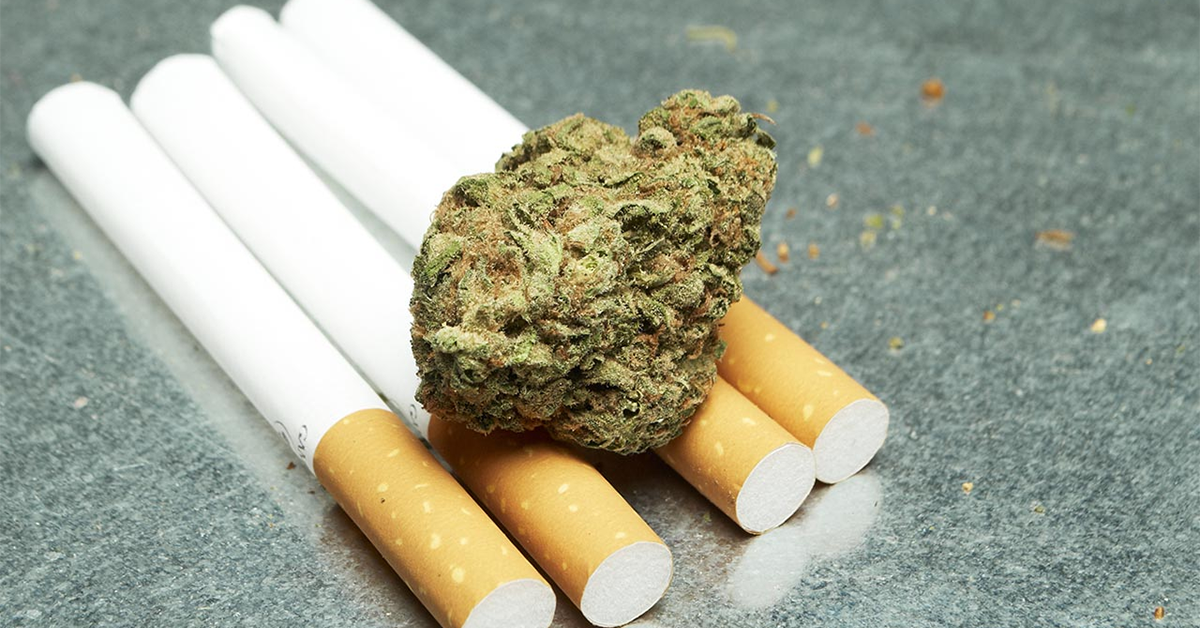Understanding the Mental Health Impact of Tobacco and Cannabis Co-Use

In an era of increasing acceptance of recreational cannabis and ongoing tobacco use, a digital cohort study aimed to understand the mental health outcomes associated with their use. The study, involving a sample of US adults, was conducted during the early to later stages of the COVID-19 pandemic and offers important insights for both public health and clinical practice.
Key Findings
-
There's a clear association between the use of tobacco and/or cannabis and self-reported anxiety and depression.
-
Notably, those who reported co-use (both tobacco and cannabis) displayed significantly higher odds of anxiety compared to those who used tobacco alone.
-
Daily use of cigarettes, e-cigarettes, and cannabis was associated with an increased likelihood of reporting anxiety and depression.
-
Surprisingly, participants were less likely to report anxiety and depression in the later stages of the COVID-19 pandemic (2022) compared to its early phase (2020).
Implications
-
Co-Use and Vulnerability: The research flags the critical issue of the comorbidity of substance use and mental health. Individuals using both tobacco and cannabis were found to be especially vulnerable to poor mental health, potentially making cessation more challenging.
-
Role of Alcohol: Beyond tobacco and cannabis, increased alcohol consumption was also linked to heightened anxiety odds, underscoring the potential risks of polysubstance use.
-
Screening for Substance Use: Given that tobacco and cannabis use is prevalent among those with mental health concerns, routine screening for these substances should be integrated into mental health treatment programs.
-
Treatment Coordination: Coordinating tobacco and cannabis cessation programs with mental health treatment could enhance outcomes. Implementing alternative coping strategies might be beneficial for those using these substances to manage or mitigate anxiety and depression symptoms.
Limitations
While the study sheds light on the intertwined nature of substance use and mental health, there are limitations to consider.
- The research design does not confirm a cause-and-effect relationship.
- The findings may not be generalized broadly as the study used a convenience sampling method, and the participants do not represent the broader US population.
- The study only inquired about certain modes of cannabis consumption, leaving other methods unexplored.
- Some data might be biased due to reliance on self-reported information, and certain crucial details, such as the purpose of cannabis use, were not collected.
Concluding Thoughts
Understanding the complex relationship between tobacco, cannabis, and mental health is pivotal in today's world. This study underlines the pressing need to integrate substance use considerations into mental health interventions and calls for a holistic approach to treatment. As society's perception of these substances continues to evolve, it is paramount for research to keep pace and offer clear guidance for public health initiatives and clinical practices.
About the Authors
Dr. Nhung Nguyen spearheads the research with key roles ranging from conceptualization to manuscript drafting and is associated with the University of California, San Francisco's Department of Medicine, focusing on Tobacco Control Research and Education.
Dr. Noah D. Peyser, Dr. Jeffrey E. Olgin, Dr. Alexis L. Beatty, and Dr. Gregory M. Marcus are integral contributors affiliated with the Division of Cardiology at the same university. Dr. Mark J. Pletcher and Madelaine F. Modrow bring expertise from the Department of Epidemiology and Biostatistics of UCSF.
Further invaluable contributions come from Thomas W. Carton of the Louisiana Public Health Institute, Rasha Khatib of Advocate Aurora Health, Djeneba Audrey Djibo from CVS Health, and Pamela M. Ling from UCSF's Center for Tobacco Control Research and Education.
Share this article:
Spotted a typo, grammatical error, or a factual inaccuracy? Let us know - we're committed to correcting errors swiftly and accurately!








 Helpful Links
Helpful Links